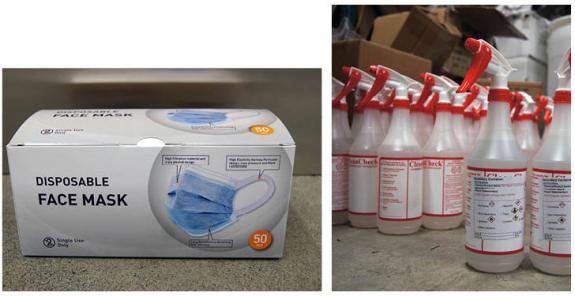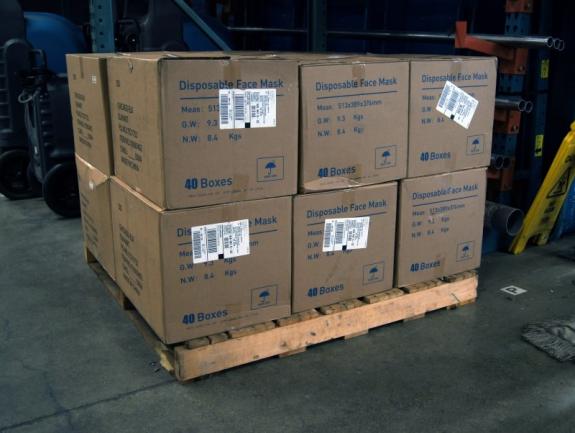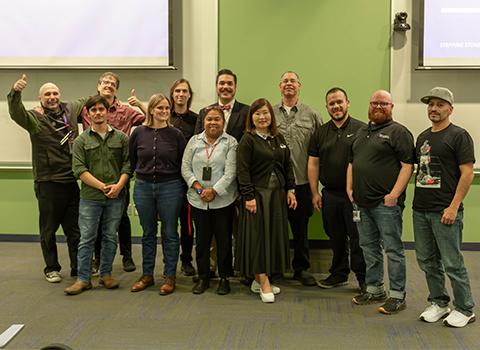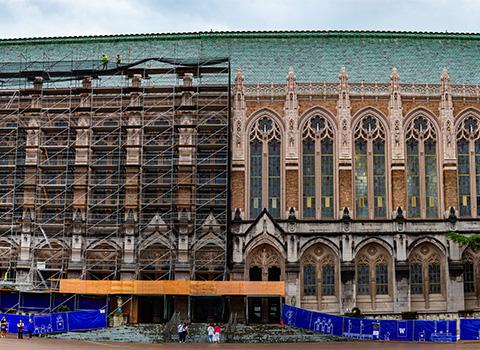Procuring PPE in a pandemic
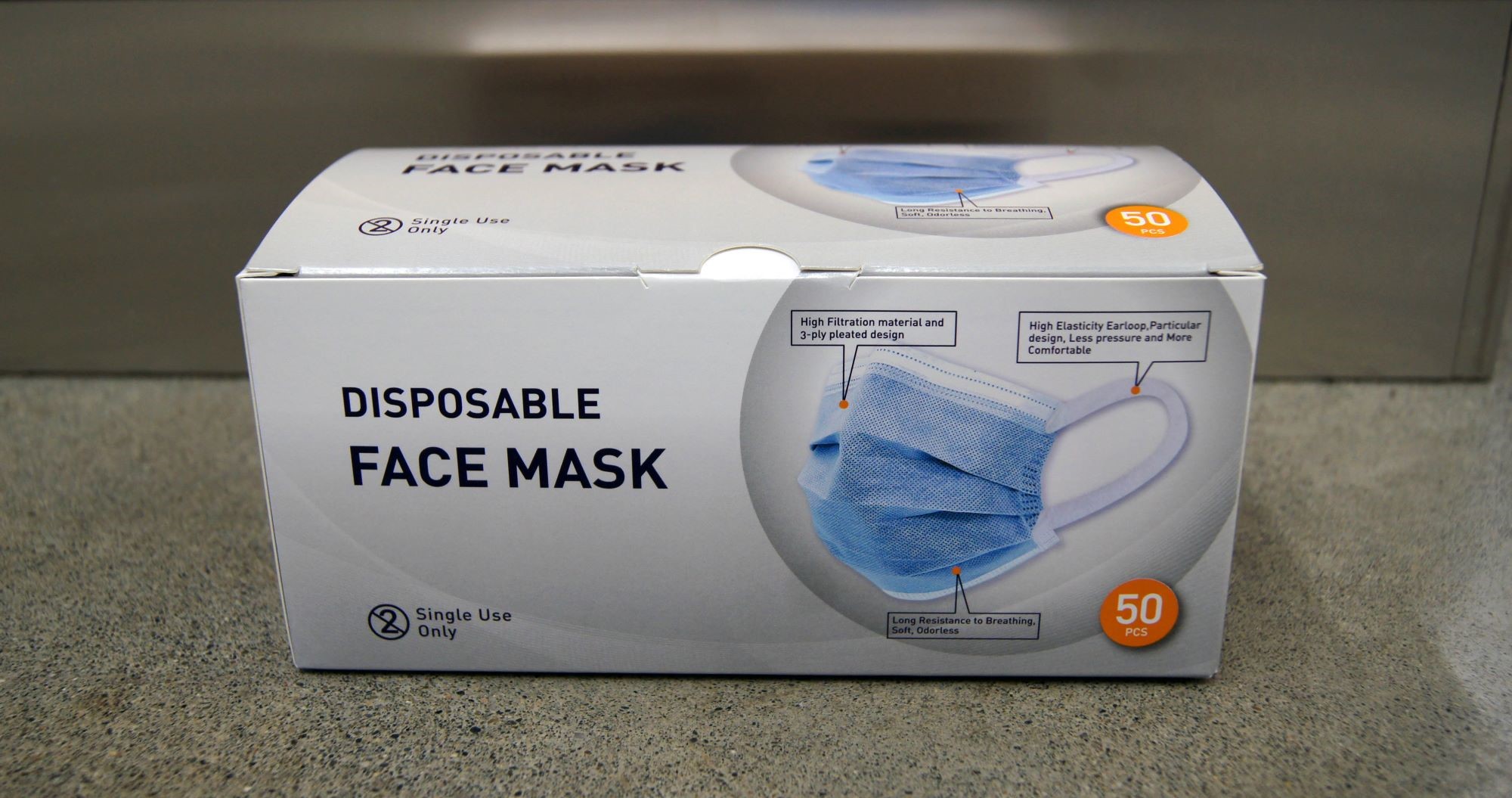
By now, we’ve all become pseudo-experts in understanding face coverings and personal protective equipment lingo. Masks, hand sanitizer, gloves, N95 respirators and the like have become all-too familiar yet essential subjects on a daily basis.
But what is it really like for UW’s procurement experts to secure masks and PPE and ensure that staff have the supplies they need?
“We spend the better part of half our days chasing down leads, vetting sources, tracking shipments [and] verifying quality,” says Aleanna Kondelis, Director of Procurement and Sourcing for UW Facilities.
With several hundred tradespeople and custodians on campus daily, UW Facilities has always been a big user of PPE. The COVID-19 pandemic just made the challenge bigger for the different groups within Facilities who work together to keep the front-line staff protected.
“UWF Procurement & Sourcing, UWF Safety, along with UWF Materials Management are responsible for ensuring that Facilities staff on campus have all the necessary COVID-killing cleaners, gloves, eye protection, masks, etc. to protect themselves as best as possible,” says Kondelis.
“Since we have had people working non-stop we have had to be particularly diligent,” Kondelis says, noting that many Facilities staff have been on campus throughout the pandemic even as other parts of the University went remote. The effort to procure materials would not be possible without the assistance and collaboration with UW Procurement Services, which is responsible for PPE for the rest of the University (UW Medicine also has a separate PPE supply chain).
Tricia Olsen Demarest, who’s a Senior Procurement & Contracts Specialist there, says that the two groups have worked closely over the past several months to secure resources, and says it’s an ever-evolving process. Working inter-departmentally, Facilities and Procurement Services also share information and leads.
“Everyone became a student again, relying on webinars from experts in disaster planning, to online roundtable discussions hosted by Group Purchasing Organizations that the UW belongs to and our professional organization, National Association for Educational Procurement, to learn about how our colleagues at other institutions have been responding,” she says. “We also have linked up with UW’s EH&S to review the products we plan to order, ensuring the supplies meet efficacy and safety standards.”
For non-Facilities staff, UW Procurement set up a central ordering site for UW units to order PPE and supplies.
“My word of advice to campus members who may be looking to procure PPE on their own would be to reach out to us in Procurement Services,” Demarest says. “We can point you to vetted sources and ensure they receive products that are approved by the University and will meet their needs safely and with the best possible terms.
UW Facilities continues to source its own masks, eye protection, disinfectant, wipes and other supplies, separate from the central UW supply effort.
“This enables us to make sure we have the specific masks and PPE needed to perform our work,” says Kondelis. Her team leads a UWF Critical Supplies group that has representatives from each Facilities department and meets regularly to distribute the necessary PPE.
Surprisingly, the larger suppliers haven’t been the top picks for acquiring masks and PPE. Instead, Kondelis credits a robust pool of pre-existing diverse business partners.
“It has been key to have partners set up before emergencies like COVID-19 happen, knowing who has resources and leveraging as much as we can,” she says. “By making sure that we place orders as early as possible and setting target numbers to procure, we have been pretty successful.”
“If anything, I would categorize diverse business being a bit easier,” Kondelis says. “When the “big” companies didn’t stabilize their supply chains, the smaller businesses seem to be able to step up in smaller quantities when needed in a pinch.”
As the group that also runs the UW’s Business Diversity & Equity program, it’s fitting that most companies Kondelis and her team are working closely with during COVID-19 are varied.
“We believe that diversity in business, faculty and students bring the best value and well-rounded outcomes to the UW and the impacted community. This policy drives contracting and procurement opportunities to a diverse supplier pool that includes local, small, minority- and women-owned businesses,” she says.
These businesses are proving to be extremely reliable — so crucial during this pandemic.
